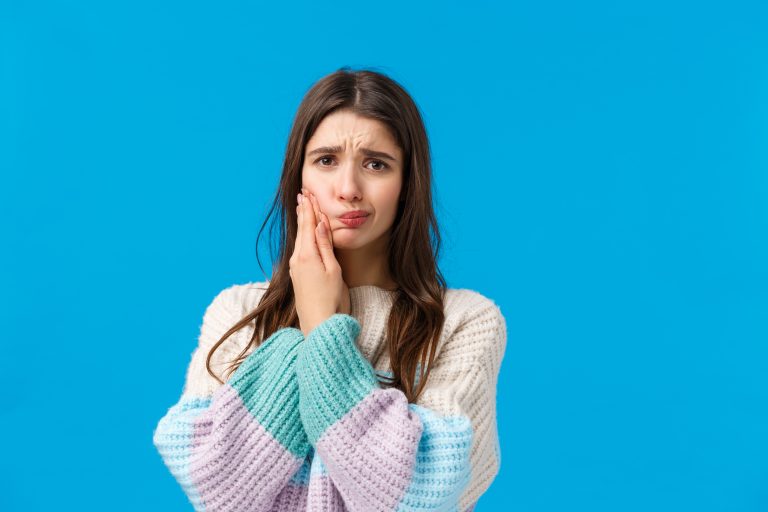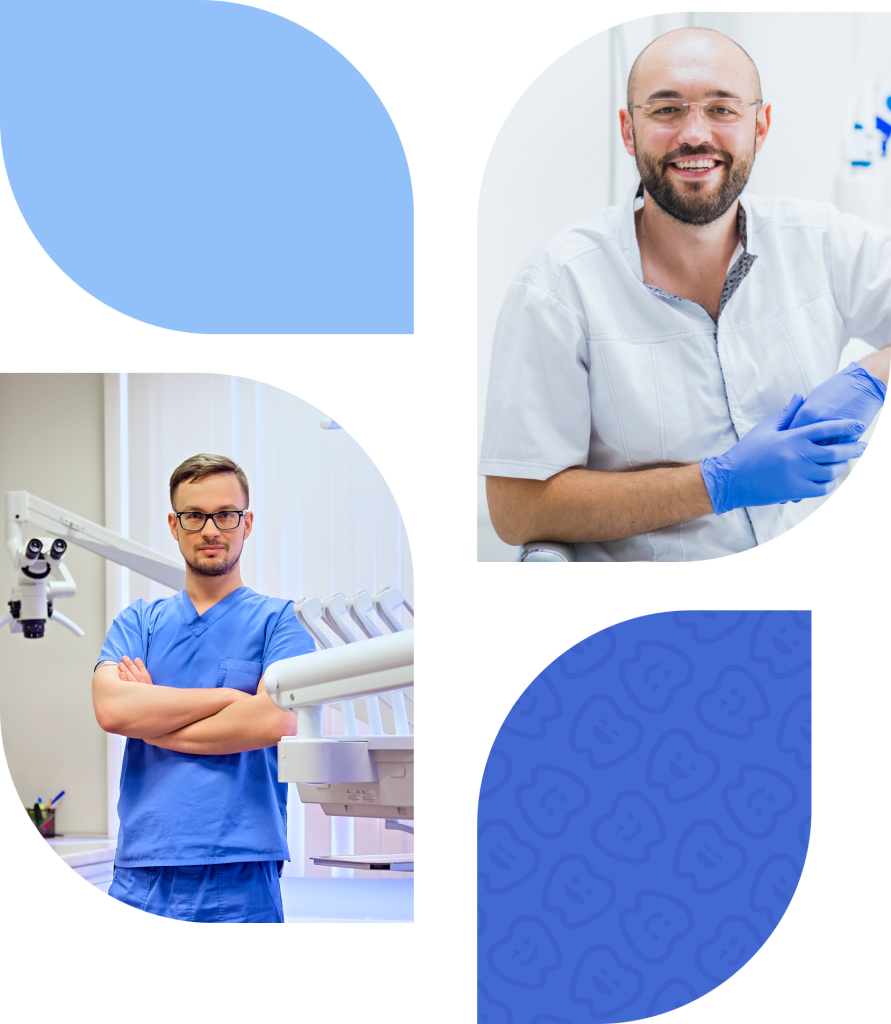


What is Bruxism? What Does Bruxism Mean?
Bruxism is the condition in which a person clenches or grinds their teeth without realizing it. Although it usually occurs during sleep, teeth clenching behavior can also be seen involuntarily during the day. Teeth clenching, which can be seen in both children and adults, is a behavior that strains the jaw muscles and can damage the tooth structure over time.
The basis of bruxism is usually stress, anxiety and psychological tension. However, disorders in the jaw structure, closing problems, diseases related to the nervous system and medication use can also be effective in the formation of this problem. When bruxism becomes chronic, it can cause complaints such as pain in the jaw joint, sensitivity around the ear, headache, tooth wear and gum recession.
Sleep bruxism occurs when a person clenches their teeth without realizing it during the night. In awake bruxism, a person can clench their teeth by tightening their jaw during stressful moments during the day. It is important to recognize bruxism and start the appropriate treatment before permanent damage occurs to the tooth structure.
What are the Treatments for Bruxism?
The methods used in the treatment of bruxism may vary depending on the source and severity of the problem. The first step is usually physical methods aimed at relaxing the jaw muscles. Using a night plate is one of the most common treatment options. Plates specially prepared by the dentist prevent the teeth from touching each other during the night and prevent wear. Oral protective devices help relieve pain complaints by reducing the load on the jaw joint.
Physical therapy applications are preferred to reduce the tension in the jaw muscles and increase mobility. Psychological support can be included in the treatment process in cases where stress triggers bruxism. Relaxation exercises, conscious breathing exercises and psychotherapy methods can be applied if necessary. Botulinum toxin injection may be recommended in some cases to relieve muscle spasms. This application provides limited-time relaxation to the jaw muscles and offers an effective solution to prevent teeth grinding. A multidisciplinary approach can be adopted depending on the underlying causes of teeth grinding.
What are the Symptoms of Bruxism (Teeth Grinding)?
The most common symptoms of bruxism include pain around the jaw, head, neck and ears. Waking up in the morning with a feeling of fatigue in the jaw muscles, sensitivity or pain in the teeth are common complaints. Thinning of the enamel layer of the teeth, flattening and cracks on the tooth surface may also be symptoms of this condition. Symptoms such as hearing a clicking sound when opening and closing the jaw, stiffness and restriction in the joint area are also signs of bruxism.
Gum recession, teeth appearing to be elongated and deterioration in tooth configurations such as fillings may also be observed. Some patients state that they experience restrictions in jaw movements and difficulty while eating. The sound of teeth grinding during sleep without realizing it can be noticed, especially by spouses or family members. This situation can reduce the quality of night sleep. As teeth clenching continues, deterioration in the jaw structure may occur. In the long term, it can lead to more serious problems such as jaw shift, asymmetric facial structure and jaw joint diseases.
How Does Bruxism (Teeth Grinding) Go Away?
The complete resolution of bruxism may vary depending on the person’s condition and the treatment applied. However, with the right intervention, it is possible to significantly reduce complaints. Using a night plate helps relieve symptoms as it prevents the jaw muscles from damaging each other. In addition, it is aimed to reduce muscle tension with physical therapy applications for the jaw muscles.
Dry needle applications, massage techniques and hot-cold compresses can be applied as a support. If problems with the closing order of the teeth are detected, these structural problems can be resolved with orthodontic treatments. In cases where psychological causes are prominent, stress management is of great importance. Applying relaxation techniques in daily life, ensuring a sleep routine and receiving psychological support when necessary contribute to this process.
In some individuals, teeth grinding complaints that increase temporarily may also regress spontaneously when the stress level decreases. A planned treatment process created with the joint follow-up of the dentist and relevant specialists can ensure that bruxism goes away.
Bruxism is a condition that is often defined as the unconscious clenching, grinding or rubbing of the teeth. In medical literature, bruxism is known as the excessive contraction of the jaw muscles and the grinding of the teeth together. This condition usually occurs while the person is asleep, so it is usually called sleep bruxism or teeth grinding. However, in some cases, it can also occur consciously during the day.
Bruxism usually occurs due to factors such as stress, anxiety, sleep disorders, misalignment of the teeth, abnormalities in the dental structure, and jaw joint problems. Symptoms of this condition may include:
Jaw Pain and Fatigue:
Bruxism can cause the jaw muscles to work excessively, which can lead to jaw pain, stiffness and fatigue.
Headaches:
Bruxism can cause headaches, especially in the temple area or the back of the head.
Tooth Wear and Sensitivity:
Constant teeth grinding can cause wear and sensitivity in the teeth.
Jaw Joint Problems:
Bruxism can lead to temporomandibular joint (TMJ) problems, which can cause limited or painful jaw movement.
Insomnia and Sleep Disorders:
Bruxism can cause insomnia or difficulty falling asleep.
Treating bruxism requires identifying the underlying cause. Treatment options may include:
Nightguard:
A custom-made nightguard, made by a dentist, protects the teeth and jaw by preventing the teeth from grinding together.
Stress Management:
Strategies to reduce stress and anxiety levels can help control bruxism.
Physical Therapy:
In some cases, physical therapy may be recommended to strengthen and relax the jaw muscles.
Medications:
Muscle relaxants or painkillers can relieve the symptoms caused by bruxism.
Tooth Alignment Treatment:
If bruxism is caused by misaligned teeth, orthodontic treatment may be recommended to properly align the teeth.
Bruxism is usually a treatable condition, but it is important to consult a dentist to determine the right treatment plan. It is also important to remember that lifestyle changes and stress management techniques can help control bruxism.
It occurs due to factors. Symptoms of this condition may include:
Jaw Pain and Fatigue:
Bruxism can cause the jaw muscles to overwork, which can lead to jaw pain, stiffness, and fatigue.
Headaches:
Bruxism can cause headaches, especially in the temple area or at the back of the head.
Tooth Wear and Sensitivity:
Constant teeth grinding can cause tooth wear and sensitivity.
Temporomandibular Joint Problems:
Bruxism can lead to temporomandibular joint (jaw joint) problems, which can cause limited or painful jaw movement.
Insomnia and Sleep Disorders:
Bruxism can cause insomnia or difficulty falling asleep.
Treatment of bruxism requires identifying the underlying cause. Treatment options may include:
Nightguard:
A custom-made nightguard made by a dentist provides protection for the teeth and jaw by preventing the teeth from grinding together.
Stress Management:
Strategies to reduce stress and anxiety levels can help control bruxism.
Physical Therapy:
In some cases, physical therapy may be recommended to strengthen and relax the jaw muscles.
Medications:
Muscle relaxants or painkillers can help relieve the symptoms caused by bruxism.
Molecular Alignment Therapy:
If bruxism is caused by misalignment of teeth, orthodontic treatment may be recommended to properly align the teeth.
Bruxism is usually a treatable condition, but it is important to see a dentist to determine the right treatment plan. It is also important to remember that lifestyle changes and stress management techniques can help control bruxism.
How to Understand Bruxism? What are the Diagnoses?
Bruxism is usually diagnosed as a result of the patient’s history, complaints and dental examination. The dentist evaluates the patient’s dental structure, jaw movements and jaw joint in detail. Abrasion marks, cracks, filling deformations and gum recessions on the teeth are important clues in making a diagnosis.
Sensitivity of the jaw muscles to palpation and irregularity in opening-closing movements may indicate the presence of bruxism. In some cases, sleep tests such as polysomnography can be used to confirm the diagnosis. This test allows observation of whether the patient clenches their teeth during the night.
Whether bruxism occurs during the day or at night is an important detail in the diagnosis process. In individuals who unknowingly clench their jaws or grind their teeth while awake, the constant contraction of the jaw muscles during clinical evaluation draws attention. After the diagnosis is made, the treatment plan is shaped according to the person’s age, current complaints and daily habits.
What are the Symptoms of Teeth Grinding While Sleeping?
In the case of teeth grinding while sleeping, known as nocturnal bruxism, the individual may wake up in the morning with jaw pain, headache or sensitivity in the teeth. Involuntary teeth clenching or grinding movements that occur throughout the night cause fatigue and excessive pressure in the jaw muscles. Significant abrasions on the tooth surface, discomfort during chewing in the morning and limited mouth opening are the main symptoms of this condition.
In cases where a night plate is not used, tooth enamel deterioration and damage to restorations such as fillings may occur. The grinding sound heard by the sleeping partner may also help to notice this condition. In individuals with nocturnal bruxism, the duration of quality sleep decreases and frequent awakenings may occur. Headaches that continue after waking up, stiffness in the neck area and general weakness may also accompany this picture. If nocturnal bruxism is not treated, it can cause structural changes in the jaw joint and permanent damage to the teeth over time.
What Causes Teeth Grinding While Awake?
Awake bruxism is usually associated with psychological and environmental factors. Stress, anxiety, intense work tempo and emotional pressures encountered in daily life can trigger this condition. A person may clench their jaw without realizing it and this situation may become a habit over time. Teeth grinding behavior may manifest itself in activities that require concentration or in moments of emotional intensity. When not consciously controlled, tension in the jaw muscles and pain due to pressure on the teeth occur.
Teeth grinding behavior while awake, unlike sleep, often progresses silently. For this reason, it may be more difficult to diagnose. Especially in individuals working at a desk, teeth grinding habit is more common during long-term focus on the computer. In reducing awake bruxism, the person gaining awareness, doing jaw relaxation exercises and getting professional support when necessary play an important role. Noticing and resting the jaw position allows the muscles to relax in the long term.
Frequently Asked Questions About Teeth Grinding (Bruxism)
Frequently asked questions about bruxism include whether this condition will completely go away, whether it will recur and whether it will cause permanent damage. With appropriate treatment, complaints can be greatly reduced. However, if left untreated, it can cause permanent structural deterioration in the teeth.
The answer to the question of whether bruxism is permanent varies depending on personal factors. The problem can be eliminated when stress is controlled or dental causes are corrected. A night plate is an effective solution to reduce the physical effects caused by bruxism. Medication is generally not preferred in the treatment of bruxism, but it can be considered as a support in some cases. If a teeth grinding sound is heard while sleeping, this should definitely be evaluated.
Bruxism can negatively affect dental aesthetics. Therefore, it is recommended to start treatment without delay. The idea that teeth grinding is only seen in children is wrong. It is also quite common in adults and the treatment process can be arranged according to age.
Bize Mesaj Gönderin
Randevu Saatleri
Pazartesi – Cuma: 08:00 – 18:00
Pazar günleri ve resmi tatillerde kapalıyız.
İletişim
Yeni Mahallesi İntizam Sokak No:7 Pendik / İstanbul
0216 390 95 80
0505 372 09 26
Hasta Yorumları
Kliniğimizde, sıcak bir karşılama, şeffaf iletişim ve üstün hizmet kalitesiyle, diş sağlığı konusundaki tüm ihtiyaçlarınıza cevap vermeye hazırız.
Kaplamalarımla alakalı gitmiştim kaplamalarımın altında kistler oluşmuştu. İmplant takıldı şuan çok memnunum .Esra hanımdan önce 3 -4 tane dişçiye gittim ama hep problemler çıkardılar kaplamayı takarken dişlerimi kökten kırdılar. En son Esra hanımı önerdiler gittim ve çok memnun kaldım . Eli çok hafif ve işi bilen bir hekim Kanal tedavisi ile dişlerimin tamamını kurtardı. yakınlarıma,aileme tavsiye ettim . Ailemden de gidenler var.

zü...ç
TR
Esra hanıma komşumun tavsiyesi üzerine gittim iyi ki tavsiye etmiş iyi ki gitmişim çok memnunum implant yaptırdım tedavim hala da devam ediyor çok içten bir doktor hastasına güven veriyor ve çok rahatlatıyor ben de herkese tavsiye ederim

em...ş
TR
Sıkça Sorulan Sorular: “Bruksizm“
Bruksizmin nedenleri tam olarak bilinmemekle birlikte, stres, anksiyete, diş yapısı ve uyku bozuklukları gibi faktörlerin etkisi olduğuna inanılmaktadır.
Evet, bruksizmin tedavisi mümkündür. Tedavi seçenekleri arasında splintler veya ağızlık kullanımı, stres yönetimi, fiziksel terapi ve gerekirse ilaçlar yer alabilir.
Bruksizm genellikle diş hekimi tarafından teşhis edilir. Diş aşınması, çene kaslarında hassasiyet veya diğer belirtiler gözlemlenerek teşhis konabilir.
Evet, sürekli bruksizm diş aşınmasına, çene ağrısına ve hatta dişlerin hasar görmesine neden olabilir. Uzun vadede bu durumun tedavi edilmemesi çeşitli sorunlara yol açabilir.
